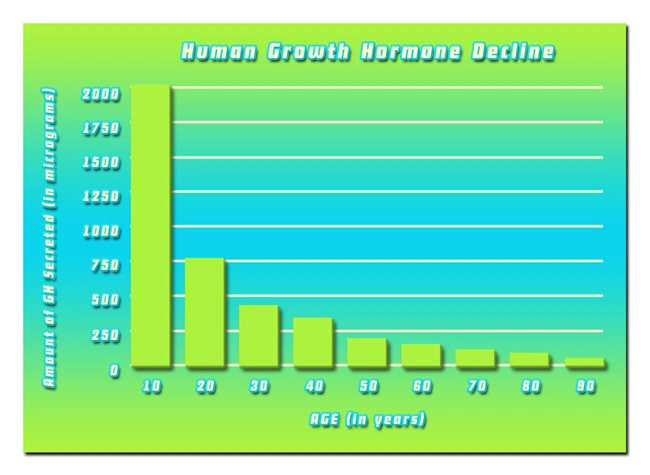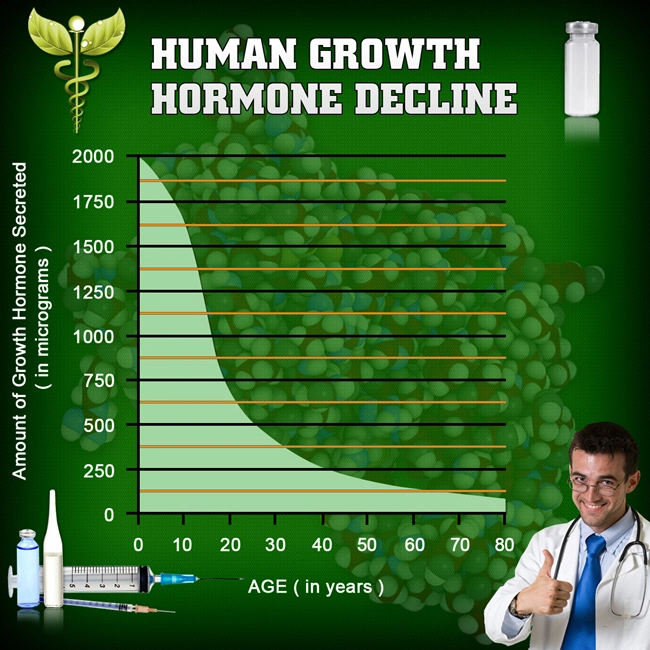
Introduction to Peptides and Their Role in Health
Peptides, short chains of amino acids, are fundamental building blocks of proteins and play crucial roles in various biological processes. In recent years, the scientific community has turned its attention to the potential of peptides in enhancing health and treating diseases, including their impact on fertility. This article delves into the latest research on peptides and their influence on male fertility, offering insights that could be pivotal for American men seeking to understand and improve their reproductive health.
The Science Behind Peptides and Fertility
Research into peptides and fertility is burgeoning, with studies focusing on how these molecules can influence reproductive outcomes. Peptides can affect the endocrine system, which is vital for fertility. For instance, certain peptides have been found to modulate the release of gonadotropins, hormones that are essential for sperm production and testosterone levels. A study published in the *Journal of Clinical Endocrinology & Metabolism* highlighted that a specific peptide could enhance the secretion of luteinizing hormone (LH) and follicle-stimulating hormone (FSH), which are critical for spermatogenesis.
Peptides and Sperm Quality
One of the key areas of interest is the impact of peptides on sperm quality. Research indicates that peptides can improve sperm motility and morphology, which are crucial factors in male fertility. A clinical trial reported in *Fertility and Sterility* demonstrated that a peptide treatment significantly increased sperm motility in men with asthenozoospermia, a condition characterized by reduced sperm movement. This finding suggests that peptides could offer a novel therapeutic approach for men struggling with fertility issues related to poor sperm quality.
Peptides and Hormonal Balance
Maintaining hormonal balance is essential for male fertility, and peptides have shown promise in this area. For example, the peptide Kisspeptin has been studied for its role in regulating the hypothalamic-pituitary-gonadal axis, which controls reproductive hormones. A study in *Human Reproduction* found that Kisspeptin administration could increase testosterone levels in men, potentially aiding fertility. This peptide's ability to modulate hormone levels offers a promising avenue for fertility treatment.
Current Challenges and Future Directions
Despite the promising findings, the use of peptides in fertility treatment faces challenges. The variability in individual responses to peptide therapy, the need for more extensive clinical trials, and the potential side effects are areas that require further investigation. However, the future looks bright, with ongoing research aimed at refining peptide formulations and delivery methods to enhance their efficacy and safety.
Implications for American Men
For American men, the research on peptides and fertility holds significant implications. As fertility rates continue to be a concern, understanding and exploring new treatments like peptide therapy could provide hope for those facing reproductive challenges. It is crucial for men to stay informed about the latest developments in this field and discuss potential treatments with healthcare providers.
Conclusion
The exploration of peptides in the context of male fertility is an exciting frontier in medical science. With studies indicating their potential to improve sperm quality, regulate hormonal balance, and enhance overall reproductive health, peptides represent a promising area of research. As the science progresses, American men should remain attentive to these developments, as they could significantly impact their fertility journey.
In conclusion, while peptides offer a hopeful new approach to tackling fertility issues, it is essential to approach this emerging field with cautious optimism. Continued research and clinical trials will be key to unlocking the full potential of peptides in male fertility, offering new hope for those seeking to start or expand their families.
Contact Us Today For A Free Consultation
Dear Patient,
Once you have completing the above contact form, for security purposes and confirmation, please confirm your information by calling us.
Please call now: 1-800-380-5339.
Welcoming You To Our Clinic, Professor Tom Henderson.

- Peptide-renovation: A New Dawn Embraces the Medical Science Sphere [Last Updated On: March 2nd, 2025] [Originally Added On: March 2nd, 2025]
- Peptides and Epigenetics: Key Roles in American Men's Health and Disease Prevention [Last Updated On: March 3rd, 2025] [Originally Added On: March 3rd, 2025]
- Exploring the Role of Peptides in Diabetes Management: Therapeutic Potential and Future Directions [Last Updated On: March 3rd, 2025] [Originally Added On: March 3rd, 2025]
- Peptides as Potential Treatments for Neurological Disorders [Last Updated On: March 4th, 2025] [Originally Added On: March 4th, 2025]
- Exploring Peptide-Based Immunotherapy in Men's Health: Cancer and Autoimmune Diseases [Last Updated On: March 5th, 2025] [Originally Added On: March 5th, 2025]
- Emerging Role of Peptides in Enhancing Men's Health and Treating Chronic Diseases [Last Updated On: March 6th, 2025] [Originally Added On: March 6th, 2025]
- Unlocking the Power of Antimicrobial Peptides in Men's Health and Beyond [Last Updated On: March 7th, 2025] [Originally Added On: March 7th, 2025]
- Peptides in Male Skincare: Enhancing Skin Health with Science and Simplicity [Last Updated On: March 8th, 2025] [Originally Added On: March 8th, 2025]
- Revolutionizing Men's Health: The Power of Biomimetic Peptides in Regenerative Medicine [Last Updated On: March 9th, 2025] [Originally Added On: March 9th, 2025]
- Unveiling the Anti-Aging Secrets: The Role of Peptides in Modern Medicine [Last Updated On: March 11th, 2025] [Originally Added On: March 11th, 2025]
- Advancements in Therapeutic Proteins and Peptides: A New Frontier for American Male Health [Last Updated On: March 12th, 2025] [Originally Added On: March 12th, 2025]
- Unlocking the Potential of Peptides in Revolutionizing Allergy Treatment for American Males [Last Updated On: March 13th, 2025] [Originally Added On: March 13th, 2025]
- Revolutionizing Health: The Role of Peptides in Precision Medicine for American Males [Last Updated On: March 13th, 2025] [Originally Added On: March 13th, 2025]
- Unlocking the Power of Peptides in Wound Healing and Tissue Repair for American Males [Last Updated On: March 15th, 2025] [Originally Added On: March 15th, 2025]
- Peptides Revolutionizing Eye Health Treatments for American Males [Last Updated On: March 18th, 2025] [Originally Added On: March 18th, 2025]
- Peptides: A Promising Solution for Metabolic Disorders in American Males [Last Updated On: March 18th, 2025] [Originally Added On: March 18th, 2025]
- Peptides: A New Frontier in Managing Respiratory Health for American Males [Last Updated On: March 19th, 2025] [Originally Added On: March 19th, 2025]
- Peptides and Gene Therapy: Revolutionizing American Male Health Treatments [Last Updated On: March 19th, 2025] [Originally Added On: March 19th, 2025]
- Peptides Revolutionize Diagnosis and Drug Delivery for American Men's Health [Last Updated On: March 19th, 2025] [Originally Added On: March 19th, 2025]
- Peptide-Based Therapies: A New Frontier in Obesity Management for American Males [Last Updated On: March 20th, 2025] [Originally Added On: March 20th, 2025]
- Peptides: A New Frontier in Managing Infectious Diseases for American Males [Last Updated On: March 21st, 2025] [Originally Added On: March 21st, 2025]
- Peptides in Veterinary Medicine: Enhancing Male Animal Health in America [Last Updated On: March 21st, 2025] [Originally Added On: March 21st, 2025]
- Peptide Therapeutics: Revolutionizing Chronic Disease Management in American Men's Health [Last Updated On: March 21st, 2025] [Originally Added On: March 21st, 2025]
- Peptide Vaccines: Progress, Challenges, and Impact on American Males' Health [Last Updated On: March 21st, 2025] [Originally Added On: March 21st, 2025]
- Peptides and Stem Cells: Revolutionizing Men's Health Treatments in America [Last Updated On: March 21st, 2025] [Originally Added On: March 21st, 2025]
- Peptide Biomarkers: Revolutionizing Disease Detection for American Males [Last Updated On: March 22nd, 2025] [Originally Added On: March 22nd, 2025]
- Peptides in Endocrinology: Revolutionizing Male Health and Performance [Last Updated On: March 22nd, 2025] [Originally Added On: March 22nd, 2025]
- Peptides in Men's Skincare: Enhancing Health and Appearance [Last Updated On: March 22nd, 2025] [Originally Added On: March 22nd, 2025]
- Peptides: Enhancing Gut Health and Wellness in American Males [Last Updated On: March 23rd, 2025] [Originally Added On: March 23rd, 2025]
- Peptides Revolutionizing Neuropathic Pain Management for American Males [Last Updated On: March 24th, 2025] [Originally Added On: March 24th, 2025]
- Peptides: Unlocking Health and Anti-Aging Benefits for American Males [Last Updated On: March 24th, 2025] [Originally Added On: March 24th, 2025]
- Peptide-Based HIV Vaccines: Progress, Promise, and Challenges for American Males [Last Updated On: March 24th, 2025] [Originally Added On: March 24th, 2025]
- Peptides Revolutionize Epilepsy Management for American Males: A New Hope [Last Updated On: March 24th, 2025] [Originally Added On: March 24th, 2025]
- Peptide Radiopharmaceuticals: Revolutionizing Cancer Imaging and Therapy for American Males [Last Updated On: March 24th, 2025] [Originally Added On: March 24th, 2025]
- Peptides: A Promising Solution for Male Hair Loss Treatment [Last Updated On: March 24th, 2025] [Originally Added On: March 24th, 2025]
- Peptide Therapies: A New Frontier in Treating Rheumatic Diseases for American Males [Last Updated On: March 24th, 2025] [Originally Added On: March 24th, 2025]
- Bioactive Peptides: Enhancing Health and Preventing Disease in American Men [Last Updated On: March 24th, 2025] [Originally Added On: March 24th, 2025]
- Peptide Bioinformatics: Revolutionizing Precision Medicine for American Males [Last Updated On: March 24th, 2025] [Originally Added On: March 24th, 2025]
- Peptide Therapy: A Promising Treatment for Hematological Conditions in American Males [Last Updated On: March 24th, 2025] [Originally Added On: March 24th, 2025]
- Peptides in Sports Medicine: Enhancing Performance and Recovery for American Male Athletes [Last Updated On: March 25th, 2025] [Originally Added On: March 25th, 2025]
- Peptides: Revolutionizing Men's Health with Targeted Therapies [Last Updated On: March 25th, 2025] [Originally Added On: March 25th, 2025]
- Peptides: A New Frontier in Combating Antibiotic Resistance for American Males [Last Updated On: March 25th, 2025] [Originally Added On: March 25th, 2025]
- Peptide-Based Biosensors: Revolutionizing Health Monitoring for American Males [Last Updated On: March 25th, 2025] [Originally Added On: March 25th, 2025]
- Peptides: A New Frontier in Mental Health for American Men [Last Updated On: March 25th, 2025] [Originally Added On: March 25th, 2025]
- Peptides: A New Hope for Treating Neurodegenerative Diseases in American Men [Last Updated On: March 25th, 2025] [Originally Added On: March 25th, 2025]
- Peptide Therapies: Enhancing Bone Health in American Males [Last Updated On: March 26th, 2025] [Originally Added On: March 26th, 2025]
- Peptide Therapies Revolutionizing Transplant Medicine: Enhancing Success and Reducing Rejection [Last Updated On: March 26th, 2025] [Originally Added On: March 26th, 2025]
- Topic Peptides: A Promising Therapy for Gastrointestinal Disorders in American Males [Last Updated On: March 26th, 2025] [Originally Added On: March 26th, 2025]
- Peptide Therapeutics: Targeted Hope for American Males with Rare Diseases [Last Updated On: March 26th, 2025] [Originally Added On: March 26th, 2025]
- Peptide Drugs in Pediatrics: Targeted Therapies for American Males' Children [Last Updated On: March 26th, 2025] [Originally Added On: March 26th, 2025]
- Peptides Revolutionizing Dental Care for American Males: Healing, Implants, and Pain Management [Last Updated On: March 27th, 2025] [Originally Added On: March 27th, 2025]
- Stem Cells and Peptides: Enhancing Health and Longevity for American Men [Last Updated On: March 27th, 2025] [Originally Added On: March 27th, 2025]
- Peptides Revolutionize Nanomedicine: Enhancing Health Outcomes for American Men [Last Updated On: March 27th, 2025] [Originally Added On: March 27th, 2025]
- Peptides: A New Frontier in Cardiovascular Health for American Men [Last Updated On: March 27th, 2025] [Originally Added On: March 27th, 2025]
- Peptides and Liver Health: Insights for American Males on Regeneration and Inflammation [Last Updated On: March 27th, 2025] [Originally Added On: March 27th, 2025]
- Peptides Revolutionize Toxicology: Diagnosis and Treatment Advances for American Males [Last Updated On: March 28th, 2025] [Originally Added On: March 28th, 2025]
- Peptide-Based Anti-Venom Therapy: A Promising Future for American Males [Last Updated On: March 28th, 2025] [Originally Added On: March 28th, 2025]
- Peptide-Polymer Composites: Revolutionizing Personalized Medicine for American Males [Last Updated On: March 28th, 2025] [Originally Added On: March 28th, 2025]
- Peptides: A Targeted Approach to Managing Inflammation in American Males [Last Updated On: March 28th, 2025] [Originally Added On: March 28th, 2025]
- Peptides: A Promising Frontier in Stroke Treatment for American Males [Last Updated On: March 29th, 2025] [Originally Added On: March 29th, 2025]
- Peptides Revolutionizing Trauma Care for American Males: Healing and Psychological Recovery [Last Updated On: March 29th, 2025] [Originally Added On: March 29th, 2025]
- Peptide-Enhanced Photodynamic Therapy: Advances and Applications for American Males [Last Updated On: March 30th, 2025] [Originally Added On: March 30th, 2025]
- Peptides as Cell-Penetrating Agents: Revolutionizing Men's Health Treatments [Last Updated On: March 30th, 2025] [Originally Added On: March 30th, 2025]
- Peptide Vaccines in Veterinary Medicine: Applications, Benefits, and Future Prospects [Last Updated On: March 30th, 2025] [Originally Added On: March 30th, 2025]
- Peptides in Acute Kidney Injury: Inflammation Control and Kidney Function Enhancement [Last Updated On: March 31st, 2025] [Originally Added On: March 31st, 2025]
- Peptide Drug Conjugates: Revolutionizing Men's Health with Targeted Therapy [Last Updated On: April 1st, 2025] [Originally Added On: April 1st, 2025]
- Peptides in Burn Care: Enhancing Healing and Scar Management for American Males [Last Updated On: April 2nd, 2025] [Originally Added On: April 2nd, 2025]
- Peptides in Substance Abuse Treatment: Insights for American Males [Last Updated On: April 3rd, 2025] [Originally Added On: April 3rd, 2025]
- Peptides: A Promising Frontier in Osteoporosis Treatment for Aging Populations [Last Updated On: April 5th, 2025] [Originally Added On: April 5th, 2025]
- Peptide Therapies: A Promising Approach to Managing Autoimmune Diseases in American Men [Last Updated On: April 7th, 2025] [Originally Added On: April 7th, 2025]
- Peptides: A Promising Treatment for Ocular Infections in American Males [Last Updated On: April 7th, 2025] [Originally Added On: April 7th, 2025]
- Innovations in Peptide Therapies for Prostate Cancer: Mechanisms, Benefits, and Future Prospects [Last Updated On: April 8th, 2025] [Originally Added On: April 8th, 2025]
- Peptides: Key Players in Fighting COVID-19 and Future Pandemics [Last Updated On: April 9th, 2025] [Originally Added On: April 9th, 2025]
- Peptide Therapeutics: Revolutionizing Pulmonary Care for American Males [Last Updated On: April 10th, 2025] [Originally Added On: April 10th, 2025]
- Peptides in Geriatric Medicine: Enhancing Health and Vitality in Aging American Males [Last Updated On: April 10th, 2025] [Originally Added On: April 10th, 2025]
- Peptides: A New Frontier in Treating Male Infertility in American Men [Last Updated On: April 10th, 2025] [Originally Added On: April 10th, 2025]
- Peptides in Post-Operative Recovery: Enhancing Healing and Reducing Recovery Time [Last Updated On: April 11th, 2025] [Originally Added On: April 11th, 2025]
- Peptides in Veterinary Dermatology: Benefits, Challenges, and Future for American Male Pet Owners [Last Updated On: April 11th, 2025] [Originally Added On: April 11th, 2025]
- Peptide Therapy: A New Hope for Depression Treatment in American Males [Last Updated On: April 13th, 2025] [Originally Added On: April 13th, 2025]
- Peptide Therapies: A New Frontier in Managing Genetic Disorders for American Males [Last Updated On: April 14th, 2025] [Originally Added On: April 14th, 2025]









